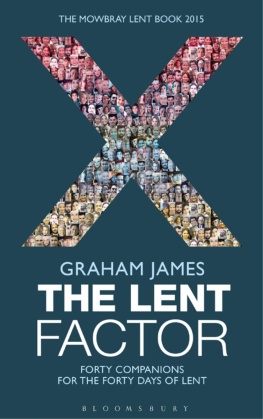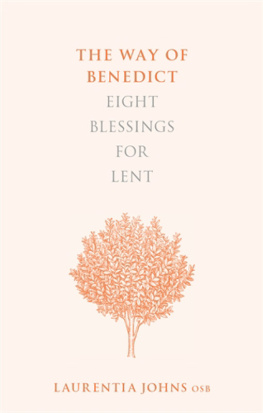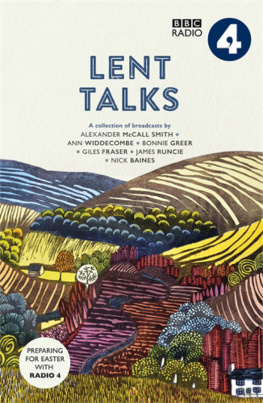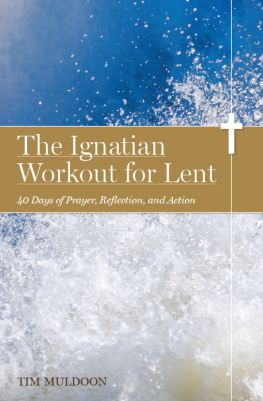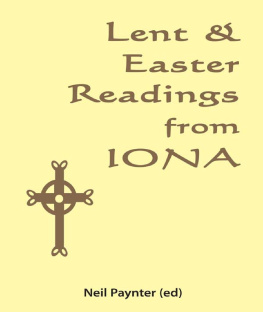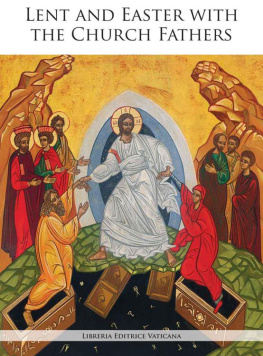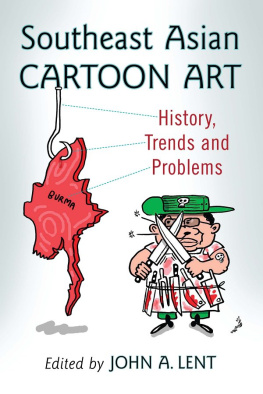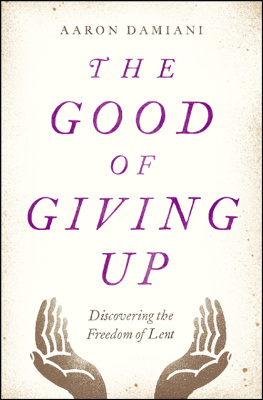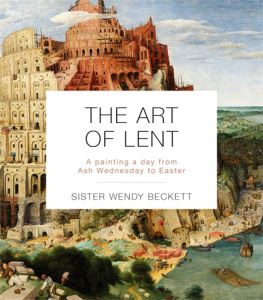This book would not have been written without encouragement from Caroline Chartres at Bloomsbury, whose expertise, good humour and wise advice along the way has been invaluable. I am grateful also to Jamie Birkett, her colleague and Kim Storry and other staff at Fakenham Prepress Solutions.
My PA, Coralie Nichols, has been an immense support in ensuring the book took shape and played an important part in proofreading and correcting errors. Any that remain are my own responsibility.
There are many others who are unaware that they have made any contribution to this book but whose stray remarks about a poet, artist, priest or friend have lodged in my mind and found a home in one or other of the chapters here. To them I owe a debt for enlarging my understanding of what it means to be a Christian disciple.
Matthew 5.110
T here are some people you feel you know even though youve never met them. The poet Charles Causley was one such person for me. He was Cornish through and through, even if those of us from west Cornwall consider Launceston (where he lived) a long way up country.
At one level Charles Causleys life was very unadventurous. Apart from his student years and his war service he never lived anywhere other than Launceston. He taught until his early retirement in 1976 at the same school he had attended as a boy. He travelled widely in the summer holidays but continued living with his mother in her house. He was an only child.
Perhaps Causleys security in his life-setting was one of the reasons why he was able to stand apart from the mainstream of contemporary poetry. As a result he was one of Englands underappreciated poets of the twentieth century. He owed little to the modernist movement. Causleys poems were inspired by ballads and popular folk songs. The novelist D. M. Thomas said of Causley, The surface simplicity of his style is deceptive. Many poets are simple while appearing to be profound. Causley, like Robert Frost, is the opposite.
Read the The Ballad of the Bread Man or Timothy Winters and the meaning of Thomass description of Causleys poetry becomes clear. The rhythm of these poems connects with some deep folk memory. You find yourself almost singing them as you read them. Causleys poetry is best heard, not simply read. The Bread Man is Jesus. The ballad recounts his birth, life and death. It is by turns funny, cheerful, tragic and profound. The Cornish cadences can be heard by those familiar with them. On the life of Jesus in Nazareth the poet says:
When they got back to the village
The neighbours said, to a man,
That boy will never be one of us,
Though he does what he blessed well can.
And then a deep fear once held by ordinary working-class people is conjured to be featured in the papers. The culture of my Cornish childhood was the very opposite of the vision of Andy Warhol who suggested we would all seek 15 minutes of fame.
He finished up in the papers
He came to a very bad end,
He was charged with bringing the living to life.
No man was that prisoners friend.
The ballad ends with the Risen Christ offering loaves. Not today they say as if to a travelling baker. The Bread of Life is rejected again.
By contrast, Timothy Winters seems on the surface a secular poem. Timothy is a neglected child, perhaps representative of many Causley encountered. His clothes are tattered and his hair unkempt. A blitz of a boy is Timothy Winters. The poem tells of his tragic life and its dire deprivations but then ends unexpectedly. Causley unashamedly uses a Cornish dialect word (helve), which refers to the sound of the distressed pleading of a cow when her calf is removed from her.
At Morning Prayers the Master helves
for children less fortunate than themselves
and the loudest response in the room is when
Timothy Winters roars Amen!
So come one angel, come on ten
Timothy Winters says Amen
Amen Amen Amen Amen.
Timothy Winters, Lord. Amen.
A poem which begins with a vivid description of this blitz of a boy concludes with the reader praying with and for him. How many clergy or teachers of prayer would envy an ability to draw people so subtly and confidently into praying? Yet Causley set out with no evangelistic intent. He lost his faith in his twenties and gradually regained it in middle age, though he was never any conventional churchman. He was so soaked in Christianity and its forms and imagery that his poetry is shaped by it, whether consciously or not.
When Charles Causley reached his 70th birthday many contemporary poets and writers contributed to a celebratory volume. Seamus Heaney, Ted Hughes, Elizabeth Jennings, Philip Larkin and Anthony Thwaite were among the honoured poets of their generation who did admire this unfashionable colleague and saw his greatness. Roger McGough, whose own poetry is rather more in the Causley tradition, contributed two poems, one of which was the briefest of offerings.
Causley, God, the sea:
Cornish Trinity.
So much said and implied in so few words.
Mrs Causley had a stroke in 1966. She could still speak and use her left hand but was otherwise immobile. She needed full-time care. The general opinion was that as a bachelor and only child, Charles should put his mother in a long-term geriatric hospital. Everyone told him not to give up his teaching job. Even at the time he was convinced that if he had been a single woman he would have been expected to do the exact opposite.
As it turned out, a good friend came to the rescue and cared for Mrs Causley during the working day until Charles came home from school to look after her from 4pm onwards and overnight. His life was restricted. He talked to his mother about her own childhood. Poems flowed from his pen. As his own life became more constricted, his imagination was fed. The stream of poetry continued when her decline was such that she needed hospitalization in her final years.
Causleys Ten Types of Hospital Visitor was written from a depth of personal experience. Causley visited his mother regularly in her long last illness. He used free verse, a sign that he wasnt restricted to the rhythms of the ballad or folk song. That long poem provided me with insights into pastoral visiting entirely missing from my ordination training.
Charles Causley said of his mother, Her simple, Christian faith never wavered she loved a church service and for seventy-five years had hardly missed a Sunday. On the other hand my feeling was that of Emerson: I like the silent church before the service begins better than any preaching. When his mother died he had no difficulty in choosing her epitaph: Blessed are the pure in heart: for they shall see God.
Charles Causley found himself a year after his mothers death in the Church of the Beatitudes in Galilee near where Jesus first preached the Sermon on the Mount. He wrote, There the words were again: Blessed are the pure in heart: for they shall see God. Through the great window, I could see the Lake of Galilee: burning blue as the water in my mothers old, galvanized-iron wash tub, after she had put in the blue-bag on a childhood Monday in Cornwall, half a century before.
The Bread Man, the Bread of Life and preacher of the Beatitudes never travelled far. He belonged to his locality so emphatically that we call him Jesus of Nazareth or the Man from Galilee. Charles Causleys mother never saw the Holy Land. She, like her son, belonged to Launceston, but the Galilean teacher was local to her, met by her in the scriptures, in her church, her prayers and her purity of heart. He was the source of her ability to see God.
Jesus of Nazareth, you never travelled far yet you were lifted up to draw the whole world to yourself; keep us mindful that the pure in heart are blessed and the meek will inherit the earth. Amen.

